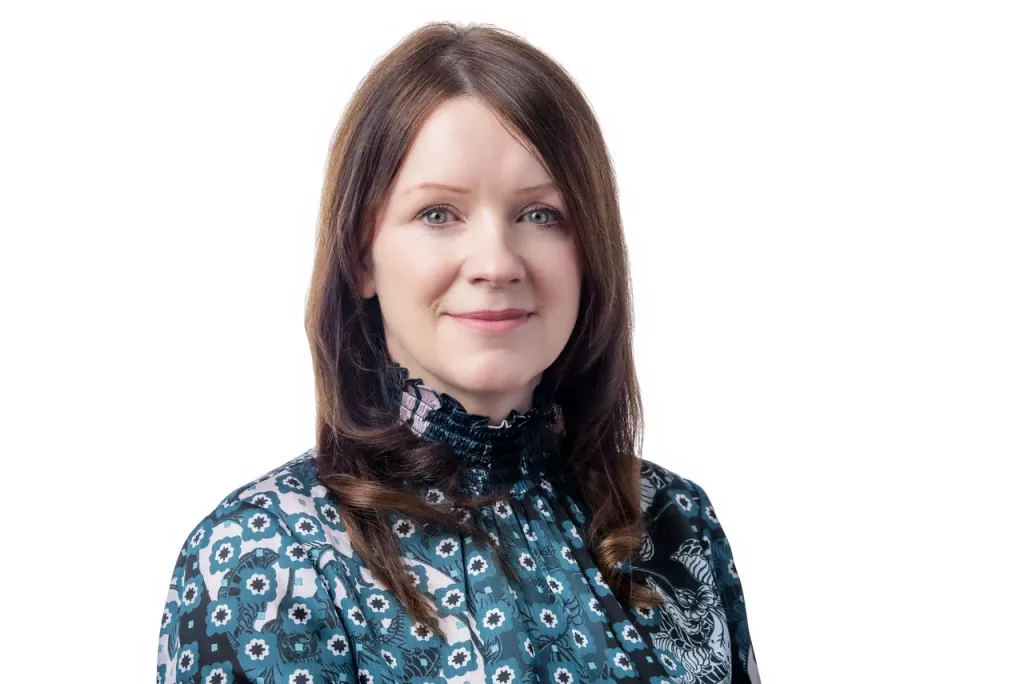25 June 2021|Crisis Management, Eco & Ethics, Latest Posts

Over the past year, as nearly every human and organisation was faced with extreme adversity and uncertainty, Preferred Hotels & Resorts approached the conversation surrounding diversity and gender equality head on, through an incredibly spirited dialogue with a diverse, global group of associates. The brand launched a dedicated task force to address concerns regarding the ubiquitous cultural upheavals, which included gender disparity, occurring in nearly every region, and through this conversation, learned a valuable lesson: diversity is key in seeing what others may miss.
“As we look ahead to the future – it is important to recognise the efforts, successes, and tips from women on our team who hold vital leadership roles and whose example inspires more hospitality companies around the globe to work toward increased diversity at the executive level,” said CEO Lindsey Ueberroth.
Below, women from Preferred’s executive team share their personal insight into achieving a more equitable future in a post Covid-19 world; advice for women beginning their careers in the hospitality industry; how to support other women on their path to success, and more.
Female Thought Leaders at Preferred Hotels & Resorts:
· Kimberly Wilson, Senior Vice President, Global Sales – Corporate
· Kristie Goshow, Chief Marketing Officer
· Brenda Collin, Executive Vice President of Europe
· Caroline Klein, Chief Communications Officer
1. How can we achieve an equal future in a post Covid-19 world?
Kimberly: A crisis situation can teach many life lessons in addition to opening new doors of opportunity. To close the gap on inequality for a more equal future, we need to assess the talent pool of women and diverse candidates, which will widen the path for others to be considered and hired for positions that were once exclusively dominated by male counterparts. It is vital to be cognisant of any limitations or unconscious bias and willing to have an open environment of inclusivity.
Kristie: Patience, mindset, and leading by example. My gender does not typically play a major role in either how I see myself or those around me. Gender should not define our capability, integrity or success. The answer is perhaps in the question “How do you think?” We are accountable for our own success. We must show others how we wish to be treated and therefore, equality is an outcome that we play an integral role in driving.
Brenda: With greater pressures commercially as a result of Covid-19, many companies are focusing on stabilising revenue and maximizing opportunity and return for their stakeholders. It is very positive to see the gender equality issue rising to the top of the agenda, and good progress is being made each year. An equal future is possible by ensuring we have champions across the government and the industry to make it happen. It starts with each one of us taking ownership and action, being a role model, mentoring females, and giving them the confidence that despite the issues still to be addressed in the workplace, that they have the ability to step up and lead.
Caroline: The disparity does not stem from women’s inability to perform essential leadership tasks. Instead, the problem stems from a lack of inclusivity. Therefore, the most impactful change the hospitality industry can make to nurture more women into leadership positions is to foster a culture of ‘conscious inclusion’, meaning leading and acting with the intent of providing equal opportunity. Recognising and preventing bias or male-dominated cultures moves beyond the traditional HR process and starts with senior leadership. Leaders need to demonstrate their dedication to attract, retain, and nurture women through the talent pipeline.
2. What are some realities that need to be addressed looking ahead to help more women succeed in business through every life stage?
Kristie: There are a few realities that we cannot change that drive a unique set of needs for women specifically (although not exclusively), and these are pregnancy and menopause. I can relate to the challenges associated with both and use my experience to support others. Many leaders and organisations have evolved their thinking and support frameworks for women during and post childbirth but few are tackling the individual challenges associated with menopause – which is – as a reminder, a rite of passage that half of the population will inevitably travel through. This is clearly a topic that warrants far deeper discussion and needs to be welcomed.
Brenda: It begins with females finding their voice from an early age. Finding a mentor that will support you in achieving your goals will make a difference. Without a doubt, raising a family can impact career progression, but only temporarily. Balancing a career with family is tough but possible especially with flexible working hours and working from home becoming more acceptable due to covid-19. We also need to address the workplace environment to be sure every woman’s voice is heard. Often the best ideas come from those too shy to speak up. Coaching on female empowerment in the workplace is one way to address that.
3. What advice would you share to women beginning their careers in the hospitality industry?
Kimberly:The hospitality industry is borderless and provides the ultimate passport to experience the world. Because there are several industry segments represented within the hospitality sector such as finance, operations, management, human resources, sales, and administration, women have a broader opportunity to learn and grow within so many disciplines. You will survive the ever-evolving changes within the hospitality industry as long as you have a tenacity mindset and believe change creates opportunity.
Kristie: Well, let’s start with congratulations – you’ve chosen an incredible industry that’s waiting for you to make your mark. Three key messages that I wish someone had shared with me that I would like to share and hope that others will pay forward are: know your worth and hold the confidence to ask for it; titles don’t matter but your performance does; and always get more sleep.
Brenda: Hospitality is one of the most exciting industries to be a part of with so much potential for any employee. I would advise any woman starting their career in this sector to research their potential employers before accepting a role to ensure there is a cultural fit. It is important to ask questions and understand the structure of the organisation. If there is not a diversity and inclusion policy in place currently, what are their plans to address this? I would advise women to have faith in themselves, continue to put themselves forward, and be present, because their contributions matter.
4. Who do you consider to be your biggest female role model and what impact have they had on your life and career?
Brenda: The person who has made the biggest impact on my life is my mother, whose words of wisdom stick with me through the good days and bad. I remember one day in 1987, when I had an important interview for my top choice university. With only 30 spots available for this opportunity, I was up against 500 other candidates. That same day, my father wanted me to confirm another offer that had to be accepted that same day. My mother, however, advised me to do what I thought was the right decision for me. “If you want it, fight for it.” I remember that interview word for word, and yes I fought for it! I wasn’t going to let my ambition of working in hospitality be taken from me.
Caroline: I am very grateful to have had such strong female role models in my life, both personally and professionally. My mum has taught me the power of resilience, my sister has taught me to be bold, adventurous, and unapologetic in focusing on what success means to me instead of following someone else’s path, and my biggest female role model is my grandma. She taught me to not let pride get in the way of responsibilities, to trust myself – my ideas, my talent, and my intuition, that many boundaries – or glass ceilings – are only in your imagination, and that your reputation is yours – and yours alone – to manage and protect.
5. What is your leadership style, and how do you inspire and support women in your company and on your team?
Kimberly:My leadership style is best described as a mentor or coach. One of the greatest skills I have learned is to listen. I like to encourage my team to share their challenges and be prepared to offer a solution, as this is a gateway for creativity. I support other women in my company simply by asking about their wellbeing or lending my support on a project directly or indirectly. Work relationships remind me of a remote village in where we all need to help one another to achieve the same or similar goals for one company to survive.
Kristie: I would describe myself as down to earth, hands on when needed, consultative, and bold. My preference is to build teams that can fly and fulfill their ambitions for growth, and if that means I become redundant in the process, I am perfectly happy with that. We should all feel proud of what we do each day and go to bed knowing that we “made an add” that day. If we all build on each other, great things will, and do take place.
Caroline: As a leader, my first step is to establish trust with each member of my team, find ways to relate with them on a personal level, and provide clarity around expectations. This creates a strong foundation built on openness and mutual understanding. From there, my leadership style is to be incredibly inclusive, lead by example, communicate openly and candidly, empower by granting autonomy, and, most importantly, champion the success of every win. It’s important to create environments where hierarchy does not exist to create truly open, honest, and unencumbered dialogue.
For more information about Preferred Hotels & Resorts, the world’s largest independent hotel brand, visit www.preferredhotels.com
- lisafoundersite
- lisafoundersite
- lisafoundersite
- lisafoundersite






